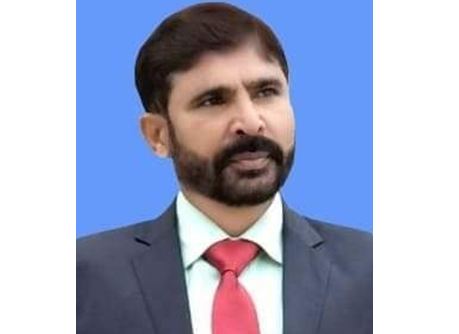Dr. Muhammad Akram Zaheer
Israel, a nation known for its vibrant democracy and complex political landscape, has been grappling with a series of political crises in recent years. At the center of these challenges is Benjamin Netanyahu, the country’s longest-serving prime minister. Netanyahu’s strategies and leadership style have been both praised and criticized, as he has navigated the turbulent waters of Israeli politics. This essay aims to explore the political crisis in Israel, the factors contributing to it, and analyze Netanyahu’s strategies in addressing these challenges.
Israel’s political landscape has witnessed numerous crises that have tested the stability of its democratic system. The root causes of these crises are multifaceted, encompassing ideological, ethnic, and security-related issues. One of the main challenges is the deeply divided nature of Israeli society, with divergent views on critical matters such as settlements, security, and the peace process with Palestinians. These divisions have led to a fragmented political landscape, making it difficult to form stable governing coalitions.
Furthermore, corruption scandals and legal issues have plagued Israeli politics, with several high-ranking officials facing investigations. These allegations have undermined public trust in political institutions, leading to a sense of disillusionment and frustration among the Israeli populace.Throughout his tenure as prime minister, Benjamin Netanyahu has employed various strategies to navigate the political crisis and retain his position. One of his key strategies has been coalition building. Recognizing the fragmented nature of Israeli politics, Netanyahu has skillfully formed alliances with parties across the ideological spectrum to create stable governing coalitions. This pragmatic approach has allowed him to maintain power despite the deep divisions in Israeli society.
Another critical aspect of Netanyahu’s strategies has been his focus on security and foreign policy. He has positioned himself as a strong leader capable of safeguarding Israel’s interests in a volatile region. This approach has resonated with a significant portion of the Israeli electorate who prioritize security concerns. Netanyahu has been adept at leveraging security issues to gain support and maintain his political standing, particularly during times of heightened tensions with neighboring countries.
Furthermore, Netanyahu has skillfully managed international relations, forging alliances and partnerships with various countries, including the United States. His close relationship with former President Donald Trump allowed him to secure significant diplomatic victories, such as the relocation of the U.S. embassy to Jerusalem. These foreign policy successes have bolstered his image as a skilled statesman and strengthened his position domestically.
Additionally, Netanyahu has capitalized on his strong base of support within the Likud party. Despite facing internal challenges and potential leadership contenders, he has effectively maintained control over the party apparatus. This control has given him a significant advantage in Israeli politics, allowing him to shape the party’s agenda and maintain loyalty among party members.
Critics argue that Netanyahu has used divisive tactics to maintain his hold on power. They point to his polarizing rhetoric and strategies that have deepened societal divisions and hindered the prospects for reconciliation with Palestinians. Additionally, his handling of corruption allegations has raised concerns about the integrity of Israeli democracy. Critics contend that his focus on personal survival has taken precedence over the best interests of the country.The political crisis in Israel is a complex issue with deep-seated causes. Benjamin Netanyahu’s strategies, which have revolved around coalition building, emphasizing security and foreign policy, and maintaining control over his party, have enabled him to weather the storm of challenges and maintain his position as prime minister. While some view Netanyahu’s strategies as pragmatic and effective, others criticize them as divisive and detrimental to the democratic fabric of Israel.
As Israel continues to grapple with political instability, it is crucial to recognize the broader systemic issues that contribute to these crises. Addressing the deep divisions within Israeli society, restoring trust in political institutions, and promoting inclusive and constructive dialogue are essential steps in overcoming these challenges. Ultimately, the resolution of the political crisis in Israel requires a collective effort from political leaders, civil society, and the Israeli populace to forge a path towards a more unified and stable future.

















